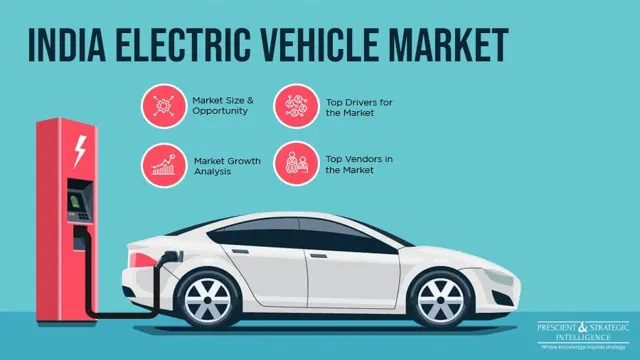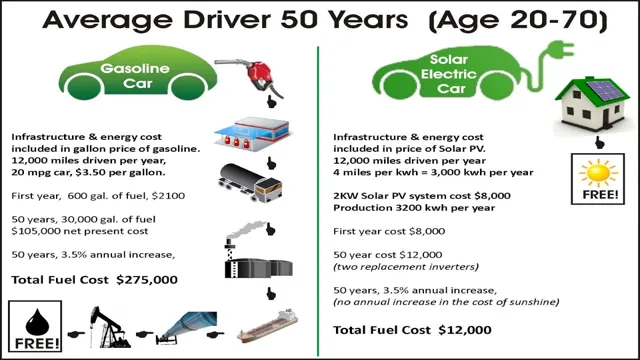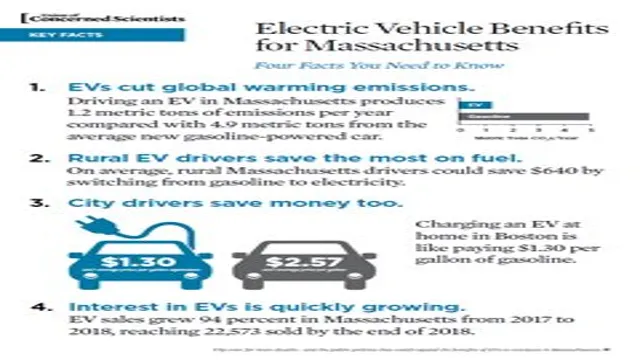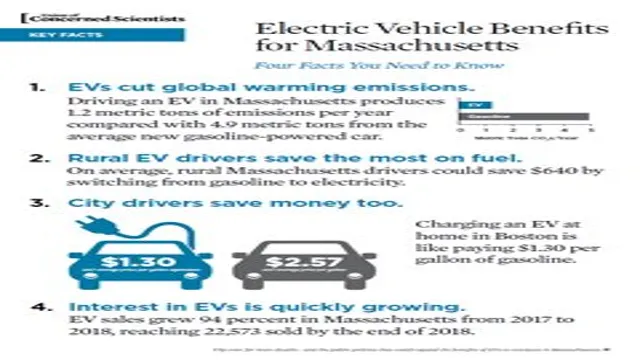Revving up India’s Future: Why Electric Cars are a Game Changer for Indian Businesses
Electric vehicles are gaining traction worldwide, and India is no exception. As automakers across the globe are racing towards a greener future, Indian companies are also jumping on the electric car bandwagon. Thanks in part to the Indian government’s push towards electric mobility, several homegrown companies are seeing a surge in demand for electric vehicles.
From established giants like Tata Motors and Mahindra Electric to relatively new players like Ola Electric, Indian automakers are making significant investments in electric vehicle technology. With India’s air quality concerns and the rising cost of petrol, electric cars might just be the answer the country needs. Let’s take a closer look at how Indian companies are driving the country’s transition to electric mobility.
Growth of Electric Cars in India
The growth of electric cars in India is offering Indian companies a chance to benefit from this emerging technology. With decreasing battery prices and government incentives promoting EV adoption, several Indian car makers are seizing the opportunity to enter this market. One company leading the way is Tata Motors, which recently launched its electric car model, the Nexon EV, and plans to introduce more electric models in the future.
Mahindra Electric is another Indian company contributing to the electric car revolution, providing electric car solutions for personal and commercial use. Smaller companies like MG Motor and Evalectric also plan to launch electric vehicles in India, making it a highly competitive market. With the Indian government’s goal to have electric vehicles make up the majority of sales by 2030, Indian companies are poised to benefit significantly from this shift in the auto industry.
Sales of Electric Cars on the Rise
Electric cars are on the rise in India, as more and more consumers are starting to see the benefits of this green technology. With advances in battery technology and growing concern over the environmental impact of fossil fuels, sales of electric cars have surged in recent years. In 2020, India saw a 20% increase in the number of electric cars on the road compared to the previous year.
This growth is expected to continue, with analysts predicting that electric cars will make up around 30% of new car sales by 2030. The push towards electric cars is being driven by both government incentives and consumer demand. With lower operating costs and a reduced carbon footprint, electric cars are becoming an increasingly attractive option for those looking to reduce their impact on the environment while also saving money.
Overall, the growth of electric cars in India is an exciting development, offering a cleaner, more sustainable future for the country’s rapidly growing population.

Government Incentives for Electric Car Adoption
As the world moves towards a more sustainable future, electric cars have become increasingly popular. In India, the government has been offering incentives to encourage its citizens to adopt electric vehicles. These incentives include tax breaks, subsidies, and reduced toll fees.
The aim is to make electric cars more accessible and affordable for the average person. The good news is that the growth of electric cars in India has been quite impressive in recent years. This can be attributed to various factors including the increasing awareness of the benefits of electric cars, the availability of charging infrastructure, and the range of electric cars available in the market.
As more people make the switch to electric cars, India is getting closer to achieving its goal of reducing carbon emissions and improving air quality. Overall, the incentives offered by the government, coupled with the growing popularity of electric cars, has set the stage for a greener and more sustainable future in India.
Potential Benefits for Indian Companies
With the world moving towards electric cars, Indian companies have an opportunity to benefit greatly. The shift towards electric vehicles opens new avenues for Indian firms to venture into. The demand for batteries, solar panels, and other components required in electric cars has skyrocketed.
This presents a huge opportunity for Indian companies that are already manufacturing these components to become leaders in the industry. Furthermore, the adoption of electric cars could lead to a reduction in air pollution, decrease dependence on oil, and save foreign exchange reserves. Electric vehicles are less noisy, emission-free and cost-effective, making it an attractive prospect for the Indian population.
The Indian government has already initiated plans to support the automobile industry’s transition to electric cars, which will undoubtedly provide a boost to local companies. With the vast resources and industrial infrastructure already present, Indian companies have the potential to make their mark in the electric vehicle market. By investing in research and development, Indian companies can manufacture electric car components more efficiently and affordably, providing a unique advantage over other countries.
Therefore, Indian companies have an opportunity to become global players in the electric car market, providing a boost to the Indian economy while also contributing to a cleaner, more sustainable future.
Reduced Dependence on Fossil Fuels
Reduced dependence on fossil fuels in India is indeed a game-changer. The potential benefits for Indian companies are enormous. With the Indian government’s push for renewable energy, companies are increasingly investing in solar, wind, and other clean energy sources.
This shift towards clean energy sources can help India tackle the rising levels of pollution, reduce its reliance on expensive fossil fuels, and lower the burden of energy imports. Moreover, companies that incorporate clean energy technologies into their production processes can improve their bottom lines, making them more competitive in global markets. This reduction in dependence on fossil fuels will lead to a cleaner, healthier, and more sustainable India.
It will also reduce the country’s carbon footprint and help in mitigating the harmful impacts of climate change. Thus, Indian companies that embrace clean energy today are assured of a better and more sustainable tomorrow.
Cost Savings from Reduced Fuel Consumption
As we shift towards an era of sustainability, companies are focusing on reducing their carbon footprint and saving costs. One way to do this is by reducing fuel consumption. Indian companies can benefit greatly from this approach.
With the rising fuel prices, companies can save costs by using alternative modes of transportation, such as electrical vehicles or using hybrid technology. These options have lower fuel consumption and are environmentally friendly. By incorporating such practices, companies can not only save money, but they can also contribute to a cleaner environment.
Moreover, businesses can attract environmentally conscious customers by promoting their eco-friendly practices. This can result in increased brand loyalty and a positive impact on the company’s reputation. By taking small steps towards sustainability, Indian companies can benefit greatly in the long run.
Opportunities for Domestic Electric Car Production
With the world gradually moving towards electric vehicles, the Indian automobile industry has realized the potential for domestic electric car production. Production of electric cars could not only contribute towards reducing carbon emissions but also create job opportunities within the country. Indian companies that focus on the production of electric vehicles could gain a competitive edge over international companies.
In addition, domestic production could reduce the reliance on imports, which can be expensive and lead to the loss of foreign exchange. Finally, it can help establish India as a major player in the global EV market, lead to a reduction in air pollution and reduce the country’s reliance on fossil fuels. With the right investment in technology and infrastructure, electric car production could shape the future of the Indian automobile industry and contribute to sustainable, economic growth.
Challenges and Limitations
Although the transition to electric vehicles offers immense benefits to Indian companies, there are still challenges and limitations they face in making the switch. One of the biggest challenges is the lack of charging infrastructure which can lead to range anxiety among consumers. In addition, many Indian consumers still prefer to purchase cars with internal combustion engines due to their familiarity with the technology.
Cost is also a major factor, as electric cars are still more expensive than their traditional counterparts. However, with the Indian government’s push towards electric mobility and incentives for consumers and manufacturers, there are opportunities for Indian companies to benefit from the electric vehicle market. By investing in research and development, building charging infrastructure, and educating consumers on the benefits of electric vehicles, Indian companies can set themselves apart and thrive in the emerging green economy.
Limited Charging Infrastructure
One of the biggest challenges facing widespread adoption of electric vehicles is the limited charging infrastructure. While the number of charging stations is growing, it still lags behind the number of gas stations available. This shortage makes it difficult for drivers to plan long trips and can cause anxiety about running out of power on the road.
Furthermore, finding a charging station that can handle fast-charging is even more challenging since these stations are even rarer. The limited charging infrastructure presents a significant hurdle to EV adoption and necessitates the expansion of the charging network. Without a reliable charging network, electric vehicles’ practicality will remain limited, hindering broader acceptance of this carbon-neutral transportation alternative.
Higher Upfront Costs for Electric Cars
Electric cars have gained widespread acceptance due to increasing awareness of the harmful effects of gas-powered vehicles on the environment. However, one of the biggest challenges to their widespread adoption is their higher upfront costs. Electric cars use expensive batteries that have a limited lifespan and require periodic replacement, which significantly increases their cost compared to traditional gasoline cars.
Additionally, the higher production costs of electric cars have been passed on to consumers, making them more expensive to purchase outright. Although the cost of electric cars is gradually decreasing, they remain significantly more expensive than gasoline cars. Despite the upfront costs, there are financial incentives and long-term benefits associated with owning an electric car.
For instance, some countries offer tax credits and subsidies for electric car buyers, and the lower maintenance and fuel costs of electric cars can result in substantial savings in the long run.
Looking to the Future
Electric cars are becoming increasingly popular around the world, and Indian companies are set to benefit from this trend. With the Indian government pushing for a shift towards electric vehicles, companies are eagerly investing in research and development to meet this growing demand. Not only will this lead to a reduction in air pollution and greenhouse gas emissions, but it will also provide new job opportunities and a boost to the Indian economy.
With the government offering incentives and subsidies for electric vehicle manufacturers, there is a lot of potential for Indian companies to become leaders in this growing industry. By focusing on sustainable solutions, Indian companies can play a vital role in shaping the future of transportation, benefiting both the environment and the economy.
Conclusion
As the world moves towards electric cars, Indian companies are poised to reap the benefits. With their expertise in manufacturing, engineering and technology, as well as the government’s push towards renewable energy, Indian companies have a unique opportunity to capitalize on the global shift towards electric vehicles. So buckle up, because electric cars are sure to drive India’s economy to new heights!”
FAQs
How will Indian companies benefit from the rise of electric cars?
Indian companies will benefit from the rise of electric cars as it will create a new market for electric cars and related products. This can lead to new business opportunities for Indian companies.
Which Indian companies are currently investing in electric cars?
Tata Motors, Mahindra & Mahindra, and Bajaj Auto are some of the major Indian companies currently investing in electric cars.
What are the challenges faced by Indian companies in the electric car industry?
Indian companies face challenges such as lack of infrastructure for EV charging, high battery costs, and limited consumer awareness and demand for electric cars.
How can the Indian government support the growth of electric cars in India?
The Indian government can support the growth of electric cars in India by offering incentives for EV manufacturers, investing in infrastructure for EV charging, and promoting consumer awareness and adoption of electric cars.



